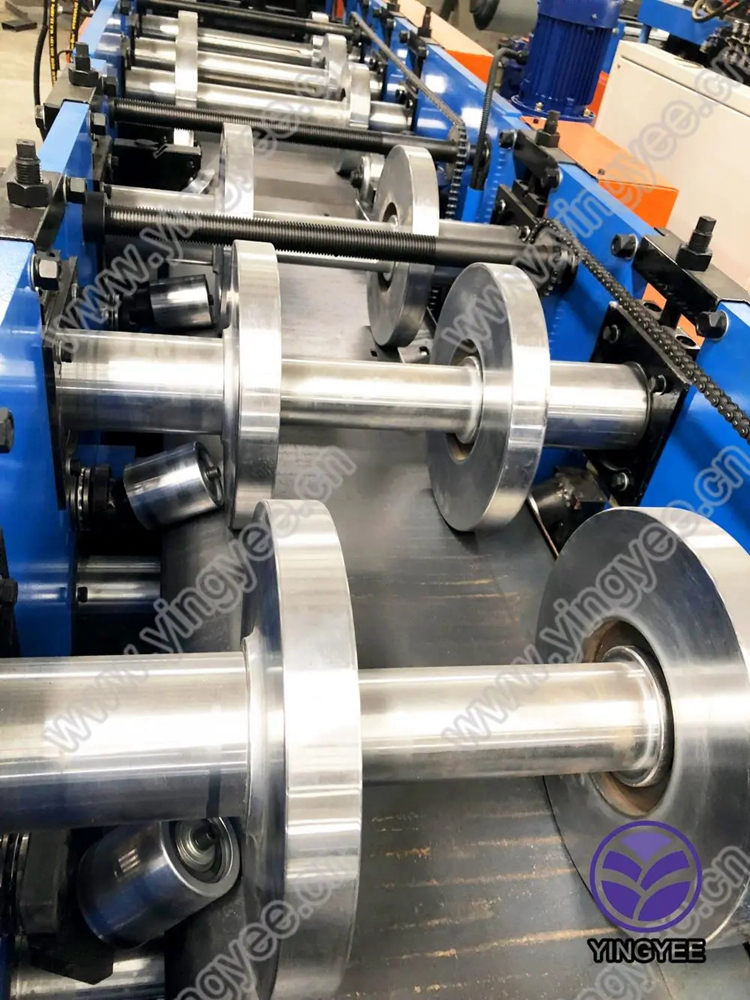
Road Sign Profile Cold Bending Machine An Essential Tool for Signage Production
In the ever-evolving landscape of urban infrastructure, road signs play a vital role in ensuring safety, navigation, and effective communication with drivers and pedestrians. To meet the growing demands for high-quality and durable road signs, manufacturers have increasingly turned to advanced machinery, such as the road sign profile cold bending machine. This innovative equipment not only enhances production efficiency but also guarantees the precision and quality of the end product.
A road sign profile cold bending machine is specifically designed to shape and profile metal sheets into various configurations required for road signs. Unlike traditional bending methods that often generate excessive heat and can compromise the integrity of the material, the cold bending process ensures that the metal retains its original properties, including strength and durability. This is particularly important for road signs, which must withstand harsh environmental conditions, such as rain, wind, and extreme temperatures.
Key Features and Functionality
The cold bending machine operates using a sophisticated system of rollers and presses that manipulate metal sheets into a pre-defined shape. The equipment can handle various materials, typically aluminum or steel, known for their lightweight and corrosion-resistant properties. By employing precise control systems, manufacturers can produce signs with exact dimensions and curvature, facilitating easy installation and enhancing visibility.
One significant advantage of the cold bending machine is its flexibility. It can accommodate different profiles required for diverse types of road signs, from regulatory signs like stop and yield to informational signs guiding tourists and commuters. This versatility implies that manufacturers can respond promptly to various market needs without significant delays or additional costs.
Moreover, these machines are equipped with user-friendly interfaces and programmable features that allow operators to set specifications quickly, reducing setup time and minimizing the likelihood of errors. The automation involved in the process not only boosts productivity but also leads to more consistent quality in production, addressing a significant concern for any manufacturer.

Economic Benefits
Investing in a road sign profile cold bending machine also carries substantial economic benefits. First, it significantly reduces labor costs by automating processes that would otherwise require multiple workers. This means that production can be scaled up without a proportional increase in labor expenses. Furthermore, the precision of the machinery limits waste material, contributing to a more sustainable production cycle.
In addition, the durability and quality of the signs produced using these machines mean fewer replacements and repairs over time, providing long-term savings for municipalities and agencies responsible for roadside management. The initial investment in cold bending technology can lead to significant returns as the signs maintain their integrity and usability for a longer duration.
Conclusion
In conclusion, the road sign profile cold bending machine stands as a testament to the intersection of technology and practicality in the modern manufacturing sector. As cities continue to expand and evolve, the demand for reliable and effective road signage will only increase. By harnessing the capabilities of advanced machinery, manufacturers can ensure that they produce high-quality signs that meet the needs of their communities.
With its combination of efficiency, flexibility, and cost-effectiveness, the road sign profile cold bending machine is undoubtedly an essential tool for the future of signage production. As urban environments become more complex, the demand for innovative solutions like these will be crucial in keeping road users safe and informed.